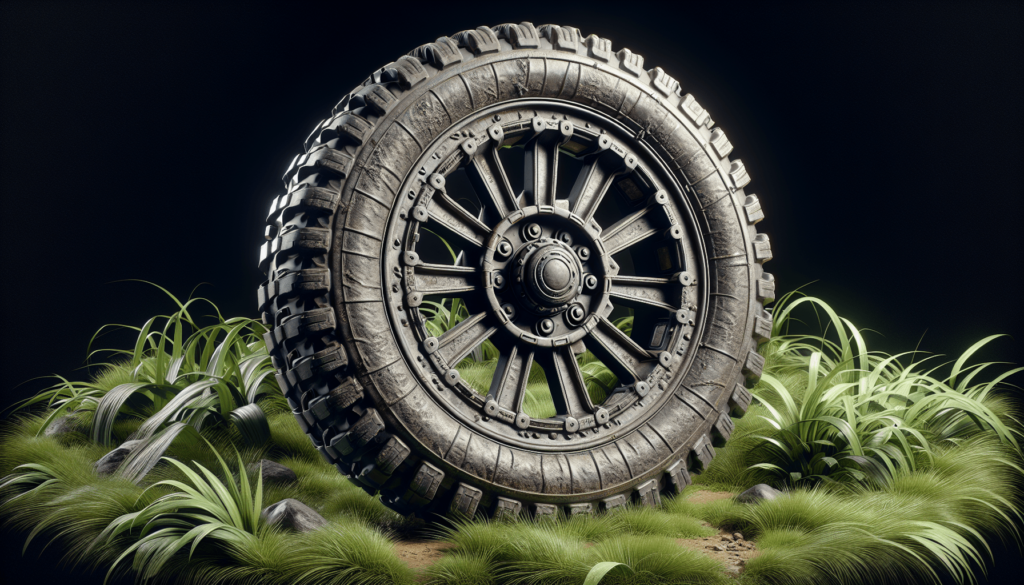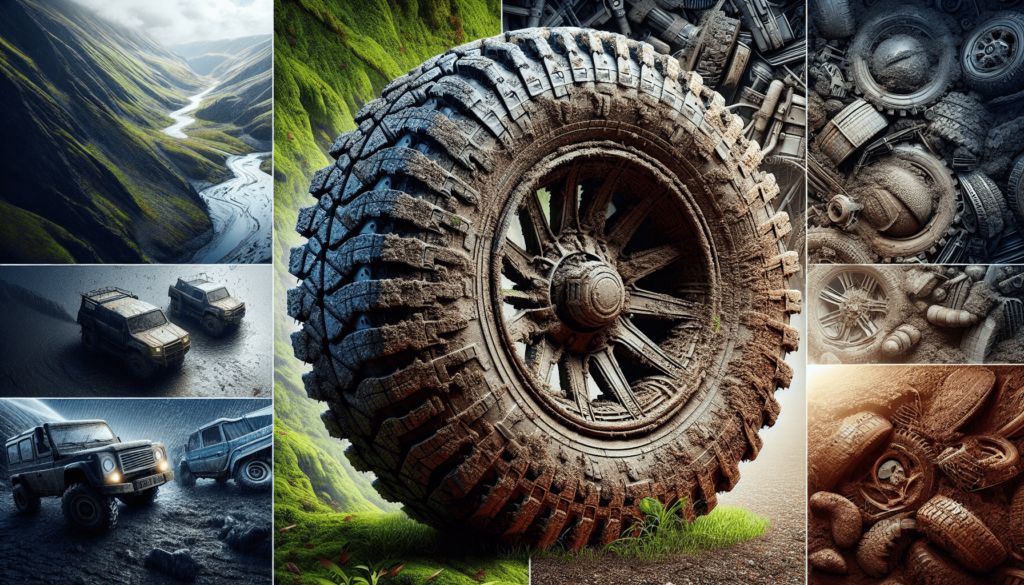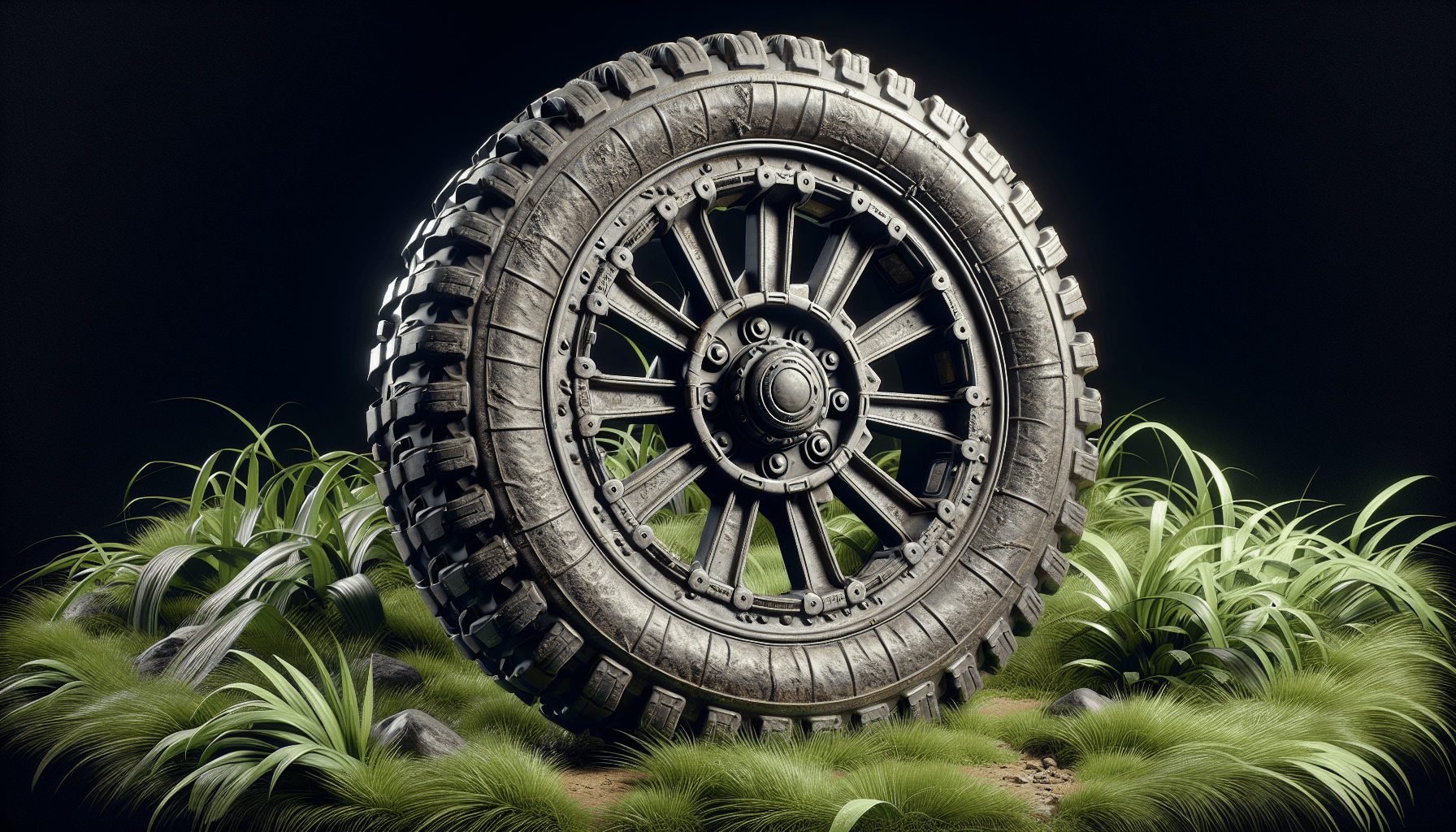Have you ever wondered how rugged and tough all-terrain wheels really are when it comes to folding wagons? You might think of these wheels as the unsung heroes of outdoor adventures, carrying your gear through all sorts of terrains. But how well do they stand up to the challenge? Let’s break it down together.

The Role of All-Terrain Wheels in Folding Wagons
When you think about it, the wheels of a folding wagon are more than just functional components; they’re the lifeblood of your outdoor experience. All-terrain wheels, in particular, are designed to handle various surfaces, from sandy beaches to rocky terrains. You probably rely on them to support everything from picnic supplies to camping gear, so it’s essential to understand how durable they are.
What Makes Wheels ‘All-Terrain’?
Before we jump into durability, it’s crucial to grasp what ‘all-terrain’ really means in this context. These wheels generally possess several key features:
- Tread Pattern: The tread is designed for improved grip on uneven surfaces. A deeper or more aggressive tread often means better traction.
- Material Composition: All-terrain wheels are typically made from robust materials resistant to wear, puncturing, and weathering.
- Size and Width: Larger, wider wheels tend to perform better on soft or uneven ground compared to smaller, narrower counterparts.
The Importance of Durability in Folding Wagons
Durability is a major factor when considering how well your all-terrain wheels will perform in a folding wagon. If they can’t hold up against various conditions, your outdoor adventures might be cut short.
Factors Affecting Wheel Durability
- Material Quality: Higher-quality materials tend to last longer. Polyurethane and rubber are common materials, each offering different durability and flexibility.
- Weight Capacity: Wheels are rated for specific weight limits. Overloading them can significantly decrease their lifespan.
- Maintenance: Like any equipment, the care you take in maintaining your wheels can extend their life.
Common Wear and Tear Issues
Understanding the issues that might arise can prepare you for maintaining your wheels:
- Tire Wear: Frequent usage especially on rough terrain can wear down the tires, leading to decreased performance.
- Punctures: Sharp objects can puncture the tire, an issue more common in aggressive terrains.
- Corrosion: If your wagon sees wet conditions, check for rust or corrosion, especially if the wheels feature metal components.
Testing Durability
So, you might be asking, “How do I know if my wheels are durable?” A few methods can shed light on their strength:
Real-Life Usage Scenarios
Think about your intended use for the wagon. Here are some scenarios to consider:
| Scenario | Durability Level Needed |
|---|---|
| Camping in the woods | High |
| Visits to the beach | Medium |
| Casual neighborhood use | Low |
Manufacturer Ratings and Reviews
Looking for reviews and ratings from other users can also provide insight into durability. You could check these platforms:
- Manufacturer Websites
- Outdoor Gear Forums
- Retailer Product Pages
When you see consistent praise or complaints, it can help guide your expectations.

Maintenance Tips for Longevity
If you’re going to invest in a folding wagon, knowing how to maintain it can make a significant difference.
Regular Checks
Conduct regular visual assessments of your wheels. Look for cracks, punctures, or uneven wear. Maintaining proper air pressure is also crucial if you have inflatable tires.
Cleaning Your Wheels
Sand, dirt, and other debris can accumulate in the wheel’s crevices. You might want to wash them with soap and water regularly. This simple act can help prevent buildup that could lead to damage over time.
Lubrication of Moving Parts
If your folding wagon features wheel components that move, ensure to apply a lubricant to prevent rust and keep it rolling smoothly.
Comparing Different All-Terrain Wheels
There’s a variety of all-terrain wheels on the market, and each has its unique strengths and weaknesses. Here’s a brief overview to help you make informed choices.
| Brand/Model | Material | Tread Type | Weight Capacity | Typical Uses |
|---|---|---|---|---|
| Brand A | Polyurethane | Aggressive | 200 lbs | Sand/Grass |
| Brand B | Rubber | Moderate | 150 lbs | Paved Roads |
| Brand C | Composite | Deep Tread | 250 lbs | Rocky/Soft |
When to Replace Your All-Terrain Wheels
Ultimately, even the best wheels will reach the end of their life. But how do you know when that time has come?
Signs That Indicate Replacement
- Excessive Tread Wear: If you can no longer see the tread pattern or it’s worn down significantly, it’s time to replace.
- Visible bulges or deformation: This indicates damage that could compromise safety.
- Frequent punctures or leaks: If you find yourself patching or replacing tires often, consider investing in new wheels.
Cost Considerations
How much you should invest in your all-terrain wheels can vary widely based on quality, brand, and features.
Budgeting for Replacement Wheels
Set aside a budget for wheel replacements. Generally, you can expect to pay:
- Low-End Options: $20 – $50 per wheel
- Mid-Range Options: $50 – $100 per wheel
- High-End Options: $100 and up per wheel
Investing in quality wheels upfront might save you money in the long run, as they may last longer and perform better under stress.
Real User Experiences with All-Terrain Wheels
Listening to real users can provide a wealth of information. Here are some insights that might resonate with you.
Success Stories
Many people love how all-terrain wheels have made their outdoor experiences smoother and more enjoyable. You’ll often find discussions on forums where users share their positive experiences, citing stability and ease of maneuvering important to their adventures.
Frustration and Issues
Sometimes, all-terrain wheels don’t perform as expected. Issues may arise from poor material choices or not meeting personal demands. Many users have shared that choosing the wrong type of wheels for their specific activities has led to unnecessary headaches.
Conclusion
Now that we’ve explored the durability of all-terrain wheels on folding wagons, you should feel better equipped to make informed decisions. Remember, the durability of your wheels significantly impacts the enjoyment and practicality of your outdoor adventures.
Invest time in understanding your needs, the characteristics of the wheels, and their maintenance. By doing so, you’ll enhance not just the lifespan of your folding wagon, but also your experiences as you traverse various terrains.
So, the next time you pack up for an outing, rest assured that the right wheels will pave the way for memorable adventures ahead.

